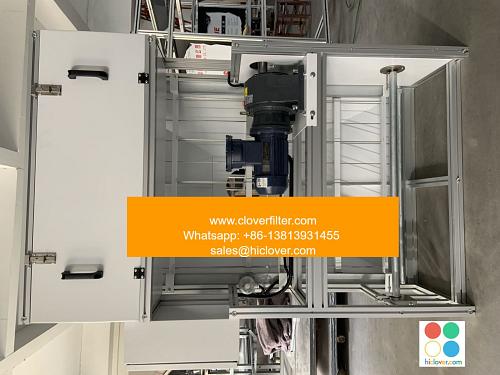Air Filter Quality Control: A Guide to Filter Certification

Air filter quality control is a critical aspect of ensuring the air we breathe is clean and free from pollutants. With the increasing awareness of indoor air quality (IAQ) and its impact on human health, the demand for high-quality air filters has risen significantly. In this article, we will delve into the world of air filter quality control, exploring the various aspects of filter certification, HEPA filter testing, and air purification systems. We will also highlight the importance of filter certification standards, such as ISO 16890 and ASHRAE 52.2, in ensuring the quality and performance of air filters.
Introduction to Air Filter Certification
Air filter certification is a process that verifies the performance and quality of air filters. It involves testing the filters against specific standards, such as particulate matter (PM) removal efficiency, airflow resistance, and pressure drop. The certification process ensures that air filters meet the required standards, providing a guarantee of quality and performance to consumers. Air filter manufacturers must adhere to these standards to ensure their products are certified and meet the demands of various applications, including industrial air filtration, commercial HVAC systems, and
Types of Air Filter Certification
There are several types of air filter certification, each with its own set of standards and testing procedures. Some of the most common types of certification include:
* HEPA filter certification: High Efficiency Particulate Air (HEPA) filters are designed to capture 99.97% of particles as small as 0.3 microns. HEPA filter certification ensures that these filters meet the required standards for particulate matter removal efficiency and airflow resistance.
* ASHRAE 52.2 certification: The American Society of Heating, Refrigerating, and Air-Conditioning Engineers (ASHRAE) 52.2 standard tests air filters for particulate matter removal efficiency, airflow resistance, and pressure drop.
* ISO 16890 certification: The International Organization for Standardization (ISO) 16890 standard tests air filters for particulate matter removal efficiency, airflow resistance, and pressure drop, with a focus on ePM1, ePM2.5, and ePM10 particles.
Application Areas for Certified Air Filters
Certified air filters have a wide range of applications, including:
* Industrial air filtration: Certified air filters are used in various industrial settings, such as manufacturing facilities, power plants, and chemical processing plants, to remove pollutants and contaminants from the air.
* Commercial HVAC systems: Certified air filters are used in commercial HVAC systems to improve indoor air quality and reduce energy consumption.
* Residential air purification: Certified air filters are used in residential air purification systems to remove pollutants and allergens from the air, improving indoor air quality and human health.
* Pharmaceutical and healthcare applications: Certified air filters are used in pharmaceutical and healthcare settings to maintain sterile environments and prevent the spread of infections.
Conclusion
In conclusion, air filter quality control is a critical aspect of ensuring the air we breathe is clean and free from pollutants. Filter certification is a guarantee of quality and performance, providing a level of assurance to consumers. By understanding the various types of air filter certification and their application areas, consumers can make informed decisions when selecting air filters for their specific needs. Whether it’s for industrial air filtration, commercial HVAC systems, or residential air purification, certified air filters play a vital role in maintaining good indoor air quality and promoting human health. Prompt

